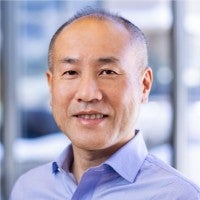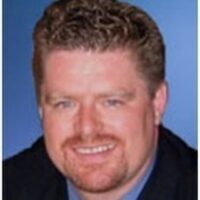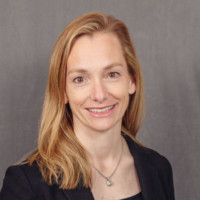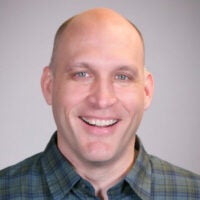-

Linus was born on December 28, 1969, in Helsinki, Finland. He enrolled at the University of Helsinki in 1988, graduating with a master’s degree in computer science. His M.Sc. thesis was titled “Linux: A Portable Operating System” and was the genesis for what would become the most important collaborative software project in history. In August 1991, Linus announced that he was developing the Linux kernel, proclaiming, “it won’t be big and professional.” Never in the history of technology has someone been so wrong. In spite of his humble proclamation, Linux has become the world’s most pervasive operating system. Today the Linux kernel forms the basis of the Linux operating system and powers billions of Android devices, powers ChromeOS, and has permeated almost every industry and form factor. Smartphones, TVs, appliances, cars, nuclear submarines, air traffic control, stock exchanges, and scientific research all run Linux. Linux also provides the underpinnings of the internet and the cloud computing industry. In 2005, citing a lack of free and open-source version control tools that met his needs for performance and scale, Linus famously created Git in only 10 days. Today Git is widely used in software development and for other version-control tasks such as configuration management and has become popular as an integral part of the DevOps culture. In 2000, Linus was listed by Time Magazine as Number 17 in the Time 100: Most Important People of the Century. Again, in 2004, Time Magazine named him one of the Most Influential People in the world. He was honored in 2008 with the Millennium Technology Prize by the Technology Academy Finland, “in recognition of his creation of a new open-source operating system for computers leading to the widely used Linux kernel.” He is also the recipient of the 2014 IEEE Computer Society Computer Pioneer Award. A true tech titan, he was admitted to the Computer History Museum Hall of Fellows, joining the ranks of the tech elite including Rear Admiral Grace Murray Hopper, Tim Berners-Lee, Gordon Moore, Ken Thompson, Dennis Ritchie, Steve Wozniak, and others. Torvalds remains the ultimate authority on what new code is incorporated into the standard Linux kernel.
-

Noriaki Fukuyasu is currently VP of Japan Operations at The Linux Foundation. Noriaki brings experience from previous roles at Finantix, Turbolinux, Zend Japan and Turbolinux India. He holds a 1998 – 2001 MA in International Relations, International Development at Nagoya University. With a robust skill set that includes Business Development, Marketing, Eto, Linux, Platform and more.
-

Dan Cauchy is the General Manager of Automotive at The Linux Foundation and the Executive Director of Automotive Grade Linux, a cross-industry effort to build an open software platform for automotive applications. Cauchy has over 22 years of experience spanning the automotive, telecom, networking, and mobile business verticals. Prior to his current position, he was the VP and GM of MontaVista’s Automotive Business Unit (acquired by Mentor). During this period, Cauchy served on the Board of Directors of the GENIVI Alliance and was responsible for the creation of the GENIVI Compliance Program, which he chaired for three years. He also has extensive startup experience and served as the Director of Product Management at Atrica (acquired by Nokia-Siemens Networks) and the Director of Architecture and Strategy at BlueLeaf Networks (now Picarro). Cauchy also previously held senior management and engineering leadership positions at Cisco Systems, Newbridge Networks (acquired by Alcatel), and Nortel.
-

Kate Stewart works with the safety, security and license compliance communities to advance the adoption of best practices into embedded open source projects. She has launched the ELISA and Zephyr Projects, as well as supporting other embedded projects. With more than 30 years of experience in the software industry, she has held a variety of roles in software development, architecture, and product management, primarily in the tooling and embedded ecosystem working with international teams.
-

My passion is improving the delivery and use of energy to reduce the carbon intensity of the grid, increase access to renewable energy, and electrify the transportation sector.
In the last 10 years I have led a dozen different research programs and new products that change the way the consumers and utility executives think about procuring, dispatching, and pricing distributed energy resources. My works spans devices, systems, communication networks, markets, policies, and grid architectures. I thrive on working with highly motivated, fast-paced teams on challenging, meaningful problems.
Specialties: product management, connected device technologies, science-engineering software interfaces, research program design, cross-functional teams for complex product development, optimization & control of energy-consuming or energy-producing devices, renewable energy technologies and data, grid integration of renewable generation technologies, energy policy and regulatory affairs, data science, spatial-temporal correlation statistics, statistical and quantitative analysis, smart grid technologies, protocols, and interfaces.
-

Greg Kroah-Hartman is among a distinguished group of software developers who maintain Linux at the kernel level. In his role as a Linux Foundation Fellow, he continues his work as the maintainer for the Linux stable kernel branch and a variety of subsystems while working in a fully neutral environment. He also works closely with Linux Foundation members and projects, and on key initiatives to advance Linux.
Greg created and maintains the Linux Driver Project. He is also currently the maintainer for the Linux stable kernel branch and a variety of different subsystems that include USB, staging, driver core, tty, and sysfs, among others. Most recently, he was a Fellow at SUSE.
Greg is an adviser to Oregon State University’s Open Source Lab and a member of The Linux Foundation’s Technical Advisory Board. He has delivered a variety of keynote addresses at developer and industry events, and has authored two books covering Linux device drivers and Linux kernel development. -

Dirk is the Head of the Open Source Program Officer at Verizon. Prior to that, Dirk was VMware’s Chief Open Source Officer, where he lead the company’s Open Source Program Office, directing the efforts and strategy around use of and contribution to open-source projects and driving common values and processes across the company for VMware’s interaction with the open-source communities. Before joining VMware, Dirk spent almost 15 years as Intel’s Chief Linux and Open Source Technologist. Before that, among other roles, he worked as Chief Technology Officer of SuSE and Unix Architect of Deutsche Bank.
Dirk has been an active developer and contributor in several dozen open source projects since the early 1990s, today most of his work is on the Subsurface dive log project and many of the related open source projects around that. Dirk holds a degree in Mathematics and Computer Science from the University of Würzburg, Germany. He lives in Portland, OR.
-

Jim’s career spans three of the largest technology trends to rise over the last decade: mobile computing, cloud computing and open source software. Today, as executive director of The Linux Foundation, he uses this experience to accelerate innovation in technology through the use of open source and Linux.
At The Linux Foundation, Jim works with the world’s largest technology companies, including IBM, Intel, Google, Samsung, Qualcomm, and others to help define the future of computing on the server, in the cloud, and on a variety of new mobile computing devices. His work at the vendor-neutral Linux Foundation gives him a unique and aggregate perspective on the global technology industry.
Jim has been recognized for his insights on the changing economics of the technology industry. His writing has appeared in Businessweek, Wired, and other top technology journals, and he is a regular keynote speaker at industry events. He advises a variety of startups, including Splashtop, and sits on the boards of the Global Economic Symposium, Open Source For America, and Chinese Open Source Promotion Union.
